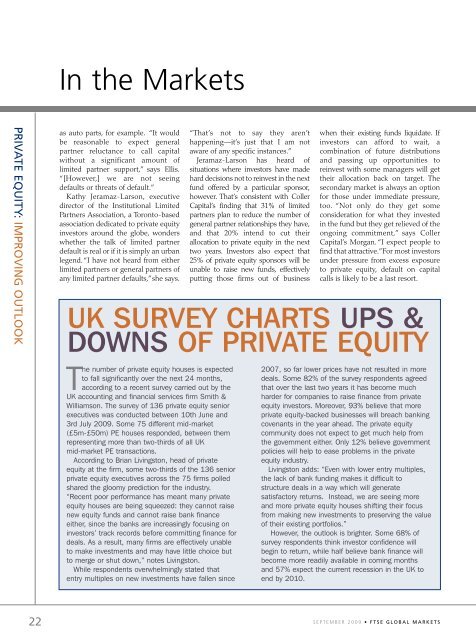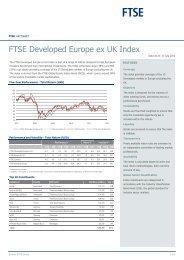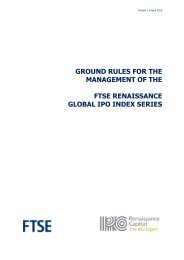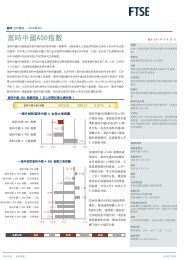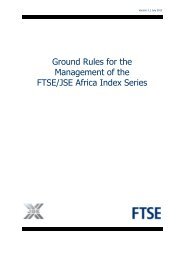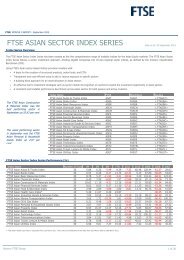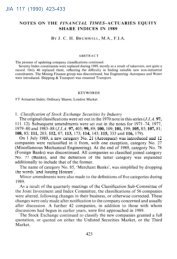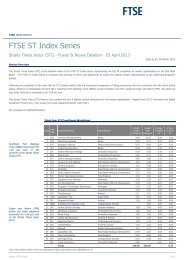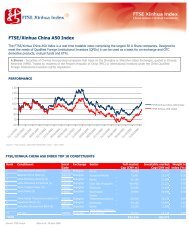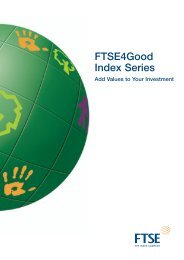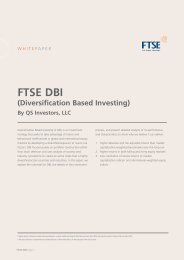Create successful ePaper yourself
Turn your PDF publications into a flip-book with our unique Google optimized e-Paper software.
PRIVATE EQUITY: IMPROVING OUTLOOK<br />
22<br />
In the Markets<br />
as auto parts, for example. “It would<br />
be reasonable to expect general<br />
partner reluctance to call capital<br />
without a significant amount of<br />
limited partner support,” says Ellis.<br />
“[However,] we are not seeing<br />
defaults or threats of default.”<br />
Kathy Jeramaz-Larson, executive<br />
director of the Institutional Limited<br />
Partners Association, a Toronto-based<br />
association dedicated to private equity<br />
investors around the globe, wonders<br />
whether the talk of limited partner<br />
default is real or if it is simply an urban<br />
legend.“I have not heard from either<br />
limited partners or general partners of<br />
any limited partner defaults,”she says.<br />
“That’s not to say they aren’t<br />
happening—it’s just that I am not<br />
aware of any specific instances.”<br />
Jeramaz-Larson has heard of<br />
situations where investors have made<br />
hard decisions not to reinvest in the next<br />
fund offered by a particular sponsor,<br />
however. That’s consistent with Coller<br />
Capital’s finding that 31% of limited<br />
partners plan to reduce the number of<br />
general partner relationships they have,<br />
and that 20% intend to cut their<br />
allocation to private equity in the next<br />
two years. Investors also expect that<br />
25% of private equity sponsors will be<br />
unable to raise new funds, effectively<br />
putting those firms out of business<br />
when their existing funds liquidate. If<br />
investors can afford to wait, a<br />
combination of future distributions<br />
and passing up opportunities to<br />
reinvest with some managers will get<br />
their allocation back on target. The<br />
secondary market is always an option<br />
for those under immediate pressure,<br />
too. “Not only do they get some<br />
consideration for what they invested<br />
in the fund but they get relieved of the<br />
ongoing commitment,” says Coller<br />
Capital’s Morgan. “I expect people to<br />
find that attractive.”For most investors<br />
under pressure from excess exposure<br />
to private equity, default on capital<br />
calls is likely to be a last resort.<br />
UK SURVEY CHARTS UPS &<br />
<strong>DO</strong>WNS OF PRIVATE EQUITY<br />
The number of private equity houses is expected<br />
to fall significantly over the next 24 months,<br />
according to a recent survey carried out by the<br />
UK accounting and financial services firm Smith &<br />
Williamson. The survey of 136 private equity senior<br />
executives was conducted between 10th June and<br />
3rd July 2009. Some 75 different mid-market<br />
(£5m-£50m) PE houses responded, between them<br />
representing more than two-thirds of all UK<br />
mid-market PE transactions.<br />
According to Brian Livingston, head of private<br />
equity at the firm, some two-thirds of the 136 senior<br />
private equity executives across the 75 firms polled<br />
shared the gloomy prediction for the industry.<br />
“Recent poor performance has meant many private<br />
equity houses are being squeezed: they cannot raise<br />
new equity funds and cannot raise bank finance<br />
either, since the banks are increasingly focusing on<br />
investors’ track records before committing finance for<br />
deals. As a result, many firms are effectively unable<br />
to make investments and may have little choice but<br />
to merge or shut down,” notes Livingston.<br />
While respondents overwhelmingly stated that<br />
entry multiples on new investments have fallen since<br />
2007, so far lower prices have not resulted in more<br />
deals. Some 82% of the survey respondents agreed<br />
that over the last two years it has become much<br />
harder for companies to raise finance from private<br />
equity investors. Moreover, 93% believe that more<br />
private equity-backed businesses will breach banking<br />
covenants in the year ahead. The private equity<br />
community does not expect to get much help from<br />
the government either. Only 12% believe government<br />
policies will help to ease problems in the private<br />
equity industry.<br />
Livingston adds: “Even with lower entry multiples,<br />
the lack of bank funding makes it difficult to<br />
structure deals in a way which will generate<br />
satisfactory returns. Instead, we are seeing more<br />
and more private equity houses shifting their focus<br />
from making new investments to preserving the value<br />
of their existing portfolios.”<br />
However, the outlook is brighter. Some 68% of<br />
survey respondents think investor confidence will<br />
begin to return, while half believe bank finance will<br />
become more readily available in coming months<br />
and 57% expect the current recession in the UK to<br />
end by 2010.<br />
S E P T E M B E R 2 0 0 9 • F T S E G L O B A L M A R K E T S


